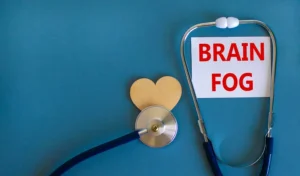
Alcoholism and Narcissistic Personality Disorder have some overlapping behaviors. Understanding how these two separate disorders are similar may offer some insight into the type of addiction treatment that would be most beneficial. Other people have experienced narcissistic abuse and have also overcome the emotional pain that comes from it. You can meet some of them by joining a support group online or in your town. You may find it difficult to identify and accept abusive narcissistic behaviors that have been carried out subtly.
Narcissism and social media addiction
In addition to looking for the red flags of a narcissist, it is also important to be able to recognize the more subtle behaviors of a covert narcissist. Being aware of these traits can help empower you, helping you to recognize and better navigate potentially unhealthy relationships and interactions. It might be more accurate to suggest that the extroverted (overt) narcissist would be a lot easier to see coming than the introverted (covert) narcissist. In relationships, covert narcissists cause hurt due to a sense of a lack of partnership or reciprocity in the relationship. The researchers found that grandiose narcissism, i.e., overt narcissism, was a positive predictor of alcohol consumption. People in this group were also less likely to see their alcohol use as a problem.

What to Do If Someone You Know Has Both Alcoholic & Narcissistic Traits
In essence, communal narcissism is a form of narcissism that masks itself under the guise of communal goals, yet remains fundamentally self-serving, ultimately affecting their subjective well-being. Effective communication involves active listening, validating emotions, and striving to find common ground to foster a sense of connection covert narcissism and alcoholism and mutual understanding in the relationship. Understanding these key characteristics is crucial in providing effective support and intervention for individuals with Borderline Personality Disorder. Moreover, they often experience an unstable self-image and identity, leading to feelings of emptiness or disconnection.
- One of the most common effects of narcissistic abuse may be feeling lonely or having a sense of worthlessness.
- Learn to prioritize your needs and say no to situations or people that compromise your well-being.
- Traits like narcissism and personality disorders like NPD are long-standing.
- As seen in Verywell, Healthline, Psych Central, Everyday Health, and Health.com, among others.
- To treat dual diagnosis, people will receive treatment options for both NPD and AUD.
What do covert narcissists do in relationships?
Since one of the hallmark traits of narcissistic personality disorder is lack of empathy, the covert narcissist is not going to be emotionally responsive to their partner in a healthy way. I turned to Craig Malkin, a therapist and author of Rethinking Narcissism (and a Psychology Today blogger), for answers to the question of how to deal with someone who has addiction and narcissism issues. Calling someone a covert narcissist doesn’t — or at least shouldn’t — imply that they’re any sneakier or more manipulative than the average narcissist. It also doesn’t have anything to do with hiding abusive behaviors — another widespread myth. There’s no evidence of any such pattern in clinical research (reports from mental health professionals) or social psychological research (the study of traits and personalities). A mental health professional can help you diagnose and treat any underlying mental health disorders that may be contributing to your alcoholism and narcissism.
- Professional guidance can provide you with valuable insights, coping strategies, and emotional support as you work through the aftermath of the narcissistic relationship.
- Although covert abuse can be hard to identify, there are signs to look out for.
- By taking these steps, seeking therapy, practicing self-care, and setting firm boundaries, you can successfully rebuild your life after leaving a covert narcissistic relationship.
- They might act aloof and disinterested or make dismissive or discounting gestures, like looking away, sighing, yawning impolitely, or acting bored.
- Often this is because they have been conditioned not to compete with a domineering overt narcissist parent.
How to determine the cause of your loved one’s behavior.
Improving communication and understanding in a relationship with a Covert Narcissist and Borderline Personality Disorder (BPD) involves actively listening and validating each other’s perspectives. Given the challenges that can arise due to the dynamics of a Borderline personality and the tendencies of a Covert Narcissist, fostering effective communication is paramount. To mitigate the impacts, it’s imperative to reduce alcohol consumption and seek the right support. Establishing clear boundaries is essential in safeguarding one’s well-being and fostering healthier relationships.

Narcissistic collapse describes an intense and sudden reaction characterized by bouts of anger, hostility, depression, and shame. The silent treatment is a form of retaliation that involves ignoring someone else, not responding to direct communication, or not being emotionally or physically available. The number of criteria a person meets determines whether they have AUD, and if so, the severity of the condition. It can be a part of celebratory occasions and fun, or an occasional way to unwind after a long day. For some people, alcohol use becomes regular and problematic and may lead to dependence.
- But addiction makes us all more narcissistic—willing to lie, steal, cheat, and even exploit others to get our high.”
- Crossing or ignoring the boundaries you’ve set, or acting as if they know better, can be a sign of covert narcissistic abuse.
- Supporting them with emotional support and encouraging them to seek professional help can be effective ways to help them overcome their addiction and manage their narcissistic tendencies.
- You can take steps to prevent relapse, such as recognizing your triggers and joining a support group.
- Since one of the hallmark traits of narcissistic personality disorder is lack of empathy, the covert narcissist is not going to be emotionally responsive to their partner in a healthy way.
Warning Signs of a Religious Narcissist
Sian Ferguson is a freelance health and cannabis writer based in Cape Town, South Africa. She’s passionate about empowering readers to take care of their mental and physical health through science-based, empathetically delivered information. Read more about living with a person who has AUD and managing a relationship with someone who has NPD.

What should I do for my mental health after leaving a narcissistic relationship?
- Both overt and covert narcissists need to meet the same clinical criteria to be diagnosed with narcissistic personality disorder, whether they are extroverted or introverted.
- Although NPD can’t be cured, someone with NPD can change their behavior if they’re willing to put in the time and effort, according to research from 2018.
- While alcohol use disorder and narcissism occur together relatively often, this doesn’t necessarily mean that NPD causes alcohol problems.
The difference between these two types of narcissism is in the expressions of their underlying feelings. The overt narcissist may be thought of as the extroverted narcissist or the one who outwardly and directly displays narcissistic behaviors, like bullying, demands, and manipulation. The covert is the introverted “closet narcissist” or the shy, hypersensitive, and socially isolated narcissist.
Are you in a relationship with someone who puts themself and their drinking before others? It can be hard to hold a connection with someone who appears https://ecosoberhouse.com/ to only think about themselves. A loved one’s drinking and selfish behavior can be devastating and cause a great deal of pain and disappointment.
How Does a Narcissist Daughter Treat Her Mother?
People with covert narcissism may not outwardly discuss these feelings of envy, but they might express bitterness or resentment when they don’t get what they believe they deserve. Although experts believe that genetic factors can make people up to 50% more inclined toward alcohol use disorder, addiction has many possible causes. A 2018 meta-analysis looked at the results of 62 studies and found that grandiose narcissism has a moderate association with increased social network use. It found that individuals with grandiose narcissism have more friends and followers, post more often, and spend more time on social media than other people. Seeking support from a therapist or a support group that specializes in narcissistic abuse can offer guidance and validation during this challenging time.